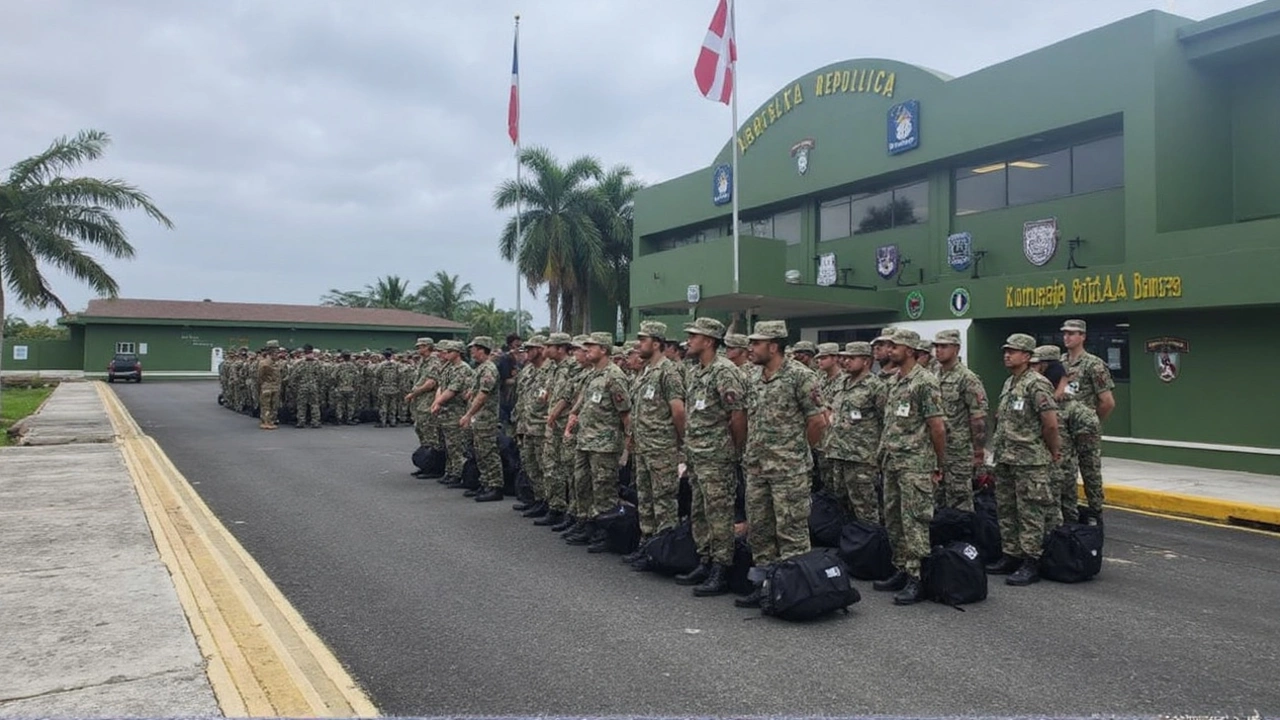Dominican Republic Takes Part in Major Regional Drill
Military drills aren’t just about boots on the ground anymore—they’re about plugging security gaps that gangs, traffickers, and smugglers love to exploit. That’s why the Dominican Republic sent its troops to Guatemala this May for CENTAM Guardian 2025, a regional security exercise that drew more than 900 soldiers from six countries across the Americas. South America’s powerhouses weren’t the only ones watching; all eyes were on how coordination among Central American neighbors and the U.S. might shift the security landscape.
From May 12 to 23, Guatemala’s usually quiet skies buzzed with the sound of helicopters and military planes, as troops from Costa Rica, El Salvador, Guatemala, Honduras, the Dominican Republic, and the United States drilled side by side. The main goal? To practice fighting cross-border crime like drug trafficking and organized crime—problems that don’t really care where national borders begin or end.
Beyond Boots and Guns: Training for Real-Life Chaos
The CENTAM Guardian 2025 drills were much more than just soldiers running obstacle courses. Each participating country, under the watchful eye of U.S. Southern Command (SOUTHCOM) and Guatemala’s Ministry of Defense, rotated through situations that every region dreads—natural disasters and humanitarian emergencies. Troops ran simulations involving earthquakes, hurricanes, and flood response, reflecting the harsh reality that climate-related crises are hitting these nations harder and more often. These disaster drills are critical in a region where a sudden storm or earthquake can quickly overwhelm local infrastructure.
SOUTHCOM commander Navy Adm. Alvin Holsey didn’t mince words when he spoke about why these exercises matter. He spotlighted how organized crime networks chip away at democratic stability and national sovereignty. Training together, exchanging expertise, and boosting interoperability gives these militaries a much-needed edge. It also sends a message: countries in this region are sick of playing defense against gangs and traffickers—they want to disrupt the patterns for good.
But military cooperation isn’t the only thing on the table. Guatemala and the U.S. are laying the groundwork for a new agreement to expand Guatemalan port infrastructure, a move that could tighten security and boost legitimate trade at the same time. The U.S. Army Corps of Engineers will be on hand to provide technical expertise, tying it all back to U.S. foreign policy goals for the region—especially those underscored by the current White House’s approach to hemispheric relations.
For residents in Guatemala, the impact was visible. Authorities reported a spike in military aircraft activity near key installations. For the Dominican Republic, the drills gave their armed forces valuable international experience, fostering new partnerships and exposing troops to innovative security strategies.
The exercise not only strengthens relationships between governments but also arms them with knowledge that can be put to the test during future emergencies. With organized networks constantly seeking weak spots, the hope is that CENTAM Guardian 2025 sets a tougher standard for cooperation and response, making bad actors think twice before crossing regional lines.





